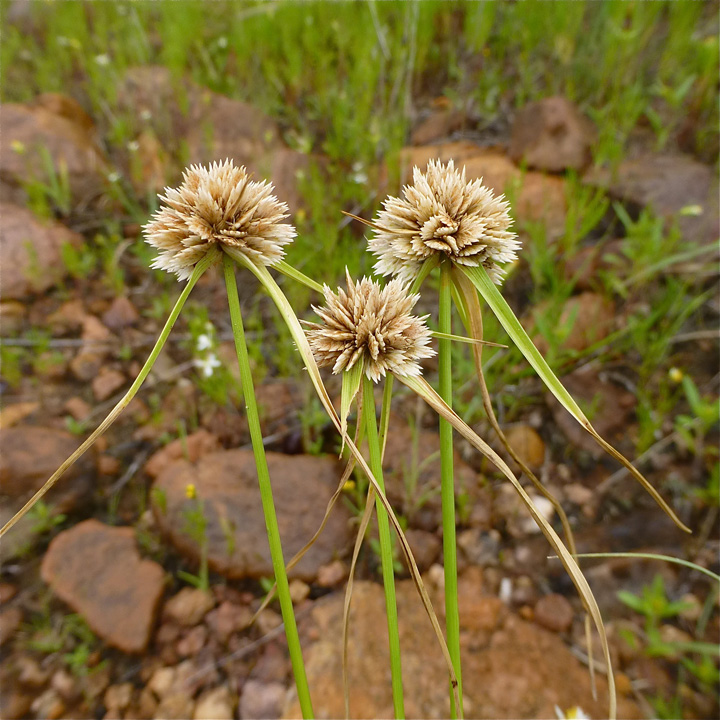Cyperus
|
Family: Cyperaceae |
Herbs, perennial or less often annual, cespitose or not, rhizomatous, stoloniferous, rarely tuberous. Culms solitary or not, trigonous or round, glabrous or scabridulous with extrorse or antrorse (rarely retrorse) prickles. Leaves usually basal; ligules absent; blades keeled abaxially, flat, V-, or inversely W-shaped in cross section. Inflorescences terminal, rarely pseudolateral, 1st order subumbellate to capitate, 2d order with spicate or digitately arranged spikelets, rarely a solitary spikelet; spikelets 1-150; 1st order rays unequal (rarely equal) in length, produced singly from the axils of inflorescence bracts; involucral bracts 1-22, spirally arranged at culm apex, spreading to erect, leaflike. Spikelets: scales to 76, distichous, each subtending flower, cylindric to compressed, borne spicately or digitately at ends of rays (occasionally proliferous). Flowers bisexual [rarely unisexual], in axils of distichous floral scales, bases often decurrent onto rachilla as ± hyaline wings; perianth absent; stamens 1-3; styles linear, 2-3-fid, base deciduous or persistent; stigmas 2-3. Achenes biconvex, flattened, or trigonous. Scales distichous, the lowermost one empty and ±modified; fls perfect, each in the axil of a scale; perianth wanting; stamens 3, less often 1 or 2; style 2-3- cleft, the beakless (or nearly beakless) achene accordingly lenticular or ±trigonous; spikelets few-many in dense or loose spikes or heads, each subtended by 2 small bracts; spikes or heads commonly in a simple or compound terminal umbel that is subtended by sheathless, leafy invol bracts; each ray of the umbel surrounded at base by a tubular prophyll; herbs with solid, ±triangular stems, the lvs with closed sheath and usually an elongate, grasslike blade. 600+, cosmop. Our spp. belong to 5 subgenera, as in the following key. Spp. 14-22 and 23-28 appear to be intergradient, presumably reflecting extensive hybridization. Gleason, Henry A. & Cronquist, Arthur J. 1991. Manual of vascular plants of northeastern United States and adjacent Canada. lxxv + 910 pp. ©The New York Botanical Garden. All rights reserved. Used by permission. |

